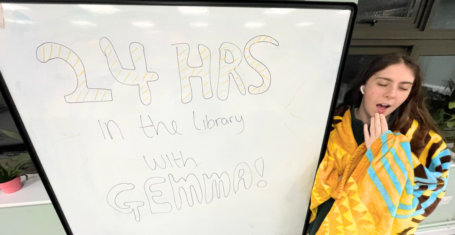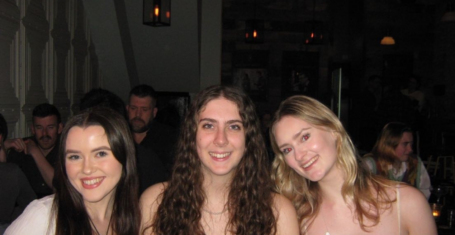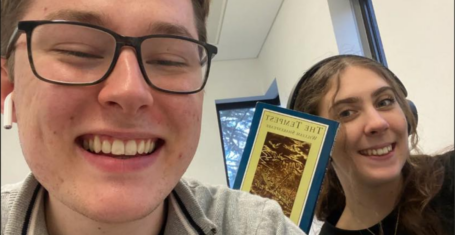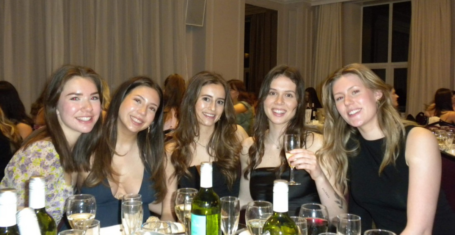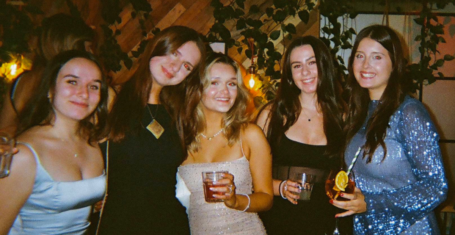
‘It is emotionally damaging to see’: Two Ukrainian students on the ongoing crisis
‘A huge fear of mine is to return to Ukraine for it to be unrecognisable’
Over a month since the war in Ukraine started, and Russian and Ukrainian soldiers are losing their lives. Civilians are dying; cities are being bombed and thousands of Ukrainians are becoming refugees. United Nations High Commissioner for Refugees (UNHCR) show that over 5 million people have had to flee Ukraine and in addition to this, about 7.1 million people have been displaced internally.
The sanctions and the ongoing anti-war protests in Russia and the peace talks between both the governments have, unfortunately, failed to stop this war. While we might think that the situation is still the same, an unchangeable truth is that each day the war lasts- more homes are destroyed, new cities are attacked, and more people become refugees.
A month ago The Tab Exeter covered the silent protest at Bedford Square. Today we interviewed current students and an alumni, asking them their experience on the ongoing war.
‘It is emotionally damaging to see videos of explosions and hear sirens with gunshots in the city where I was born and raised’

The Tab Exeter spoke to Artem Dubas, who is an alumnus and studied BSc Economics and Politics at Exeter. Whilst he is currently living in the UK and working in a wealth management fund, his family and his sister and her husband are in Ukraine.
He told The Tab Exeter: “they have stayed in Kyiv for three weeks since the war started. After an adjacent street got shelled, they were forced to leave the city. Now, they are living in the south-west of Ukraine in a tiny village which is away from full-blown military activity”.
Whilst they are away from the atrocity, he is fearful about his family’s wellbeing and their safety, adding: “It is emotionally damaging to see videos of explosions and hear sirens with gunshots in the city where I was born and raised. As I am in the UK, I cannot even begin to fathom what it’s like witnessing this first-person and what my family and friends in Ukraine are going through.”
Artem comments on reports of “false and misleading” news which have been claimed to be orchestrated by Russian intelligence. Artem says he is “not surprised” by this, and says his biggest takeaway is to think critically, and to personally fact check all information that seems out of place.
‘The invaders are attacking aimlessly, and we never know what tomorrow will bring. A huge fear of mine is to return to Ukraine for it to be unrecognisable’

The Tab Exeter also spoke to Imogen Davis, a second-year student studying BSc Neuroscience at Exeter. Whilst she is thankful that she does not have any immediate family in Ukraine she says: “my mum was recently in Ukraine waiting for a UK visa after my family moved here in November last year. She was lucky enough to have received it and fly into England three days before the invasion began.
“However, my great aunt and second cousins are amongst my extended family who never managed to flee. I receive daily updates from my mum who is in close touch with them. They live in a rural area about an hour outside of central Kyiv, and the conditions they are living in worsen by the day.
“Yesterday, my mum texted to let me know that an explosion had destroyed one of their windows. Also, they lost electricity several days ago. Neighbouring villages have been burned down, as was a house next door to them. Their home is not suited to shelter them from the bombs, so we worry very much for them.
“My biggest fear is losing someone I know. Along with my family, we have many friends who have stayed behind. My close friend’s parents fled Kyiv a few weeks ago and are now residing in a city in western Ukraine – Lviv. Lviv has been peaceful thus far, but the Russian army is starting to bomb those regions too. Many of my friends’ fathers have had to stay behind and hide in ‘safe’ regions – but as the war progresses, we realise that no one is really truly guaranteed safety. The invaders are attacking aimlessly, and we never know what tomorrow will bring. Another very huge fear of mine is to return to Ukraine and for it to be unrecognisable.”
Imogen mentions she will not be able to meet her friends and family this summer. In addition to this, she adds: “my mental health has been severely affected. It feels like my life has been put on hold since the day it began. It makes it very difficult to focus on my studies and muster the motivation to prepare for important deadlines.” She is, however, channelling her energy towards helping out in hosting vigils, fundraisers and collecting donations and attending gigs supporting humanitarian aid relief.



